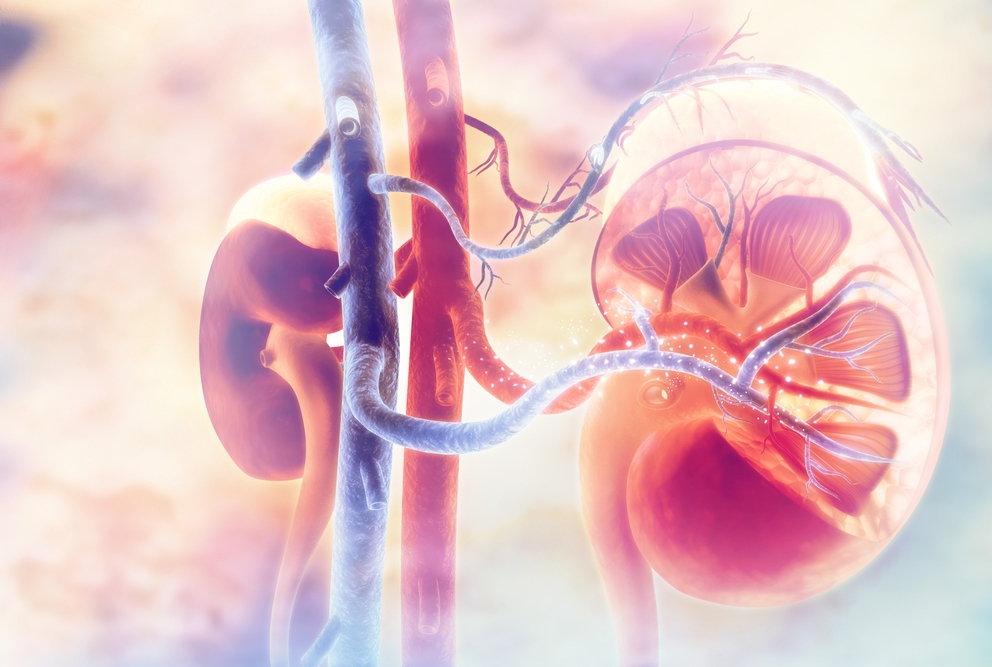An intercampus research team at Weill Cornell Medicine and Cornell’s Ithaca campus has been awarded a five-year, $3.65 million grant from the National Institutes of Health (NIH) to develop a quick, inexpensive method for accurately diagnosing urinary tract infections in kidney transplant patients by carrying out molecular profiling of cell-free DNA in urine.
Urinary tract infections (UTI) are a common complication for 150 million people each year, including the more than 15,000 patients who receive kidney transplants.

Dr. Iwijn De Vlaminck
The team is headed by Dr. Iwijn De Vlaminck, an assistant professor at the Meinig School of Biomedical Engineering at Cornell University, along with Dr. Christopher Mason, an associate professor of physiology and biophysics and co-director of the WorldQuant Initiative for Quantitative Prediction at Weill Cornell Medicine, and Dr. Darshana Dadhania, an associate professor of medicine at Weill Cornell Medicine and medical director of the Kidney and Pancreas Transplant Program at Weill Cornell Medicine and NewYork-Presbyterian/Weill Cornell Medical Center.
The investigators’ work has been supported by Cornell’s Academic Integration initiative, which aims to foster collaborations spanning Weill Cornell Medicine, Cornell Tech and Cornell’s main campus in Ithaca in order to advance research and innovation across the university’s community. The investigators met in 2017 while participating in the RNA Biology Symposium, an intercampus event sponsored by Academic Integration. The team went on to receive two of the initiative’s seed grants, leading to two publications in 2019 and this NIH award.
“This pilot program has been really important in helping us continue to foster collaborations and bring in other people to support more research projects. Ultimately, that’s really enabled us to make the jump from a smaller project to this large project,” Dr. De Vlaminck said. “We needed a cohort of patients to work with, the engineering to develop the methods and the computation biology to connect the pieces. Together, we have all the parts and the expertise to do it.”
The investigators will look at a prospective cohort study of 300 kidney transplant patients. Using technology they previously developed, they will sequence cell-free DNA from urine samples taken at multiple points during the six months following transplant, looking for genomic evidence of UTI. In addition, they will quantify whether the pathogens in a patient’s urine are causing injury to specific organs, a particular problem for transplant patients who may face rejection of the transplanted organ.

Dr. Christopher MAson
“Kidney transplant recipients are the ideal cohort for this investigation since they are more prone to infection because of their immunosuppressed state and where an unrecognized or untreated infection can lead to kidney failure,” Dr. Dadhania said.
Cell-free DNA (cfDNA) are tiny pieces of DNA that are released from cells and circulate throughout the body. They can come from the host’s cells or from bacteria and viruses. In the case of kidney transplant and UTI, patients may have cfDNA from the bacteria causing the infection in their urine. The current standard of diagnosis for UTI is urine culture, but not all pathogens grow in culture, leaving some infections undiagnosed or incorrectly diagnosed. Being able to sequence the cfDNA from these bacteria would provide a definitive diagnosis, drilling down on exactly what pathogens are present, and even in what organ they’re originating.
“Urine is a dynamic and informative molecular readout of what’s happening in the body,” said Dr. Mason, who is also an associate professor of computational genomics in computational biomedicine in the HRH Prince Alwaleed Bin Talal Bin Abdulaziz Al-Saud Institute for Computational Biomedicine and the WorldQuant Foundation Research Scholar at at Weill Cornell Medicine. “What’s there and where is it coming from? Is the infection in the kidney or the bladder? Is it resistant to antibiotics? We’re developing one tool that will be able to answer all those questions.”
The goal is to develop one assay to test the presence or absence of a very large range of microorganisms. “It’s very powerful,” Dr. De Vlaminck said. “And then on top of that, there are the host injuries that we can identify, and other things like antibiotic resistance that often happens also at the sequence level. So there’s an enormous amount of information being generated.”

Dr. Darshana Dadhania
As judicious use of antibiotic therapy is important to avoid drug resistance, managing recurrent urinary tract infection symptoms can be a challenge for physicians. “Hopefully this technology will give us the full picture of which organism or organisms are causing the symptoms, what drugs the organism will respond to and what type of organ injury is occurring,” Dr. Dadhania said. “Such an assay that will help us treat not only kidney transplant patients but all patients with urinary tract infections better.”
“Molecular monitoring of kidney transplant recipients was pioneered at Weill Cornell Medicine and is the central focus of our NIH-sponsored research,” said co-investigator Dr. Manikkam Suthanthiran, the Stanton Griffis Distinguished Professor of Medicine and Chief of Nephrology, Hypertension and Transplantation Medicine at Weill Cornell Medicine and NewYork-Presbyterian/Weill Cornell Medical Center. “We are delighted that our ongoing urinary cell mRNA profiling studies of kidney allograft recipients will be complemented by profiling of urine cell free supernatants for DNA.”
In addition to an intercampus collaboration, the study is interdisciplinary and includes investigators with expertise in the areas of computational biology, nephrology, transplantation immunology, pathology and infectious disease. Weill Cornell Medicine co-investigators include Dr. Suthanthiran, Dr. Lars Westblade, an associate professor of pathology and laboratory medicine, and Drs. Michael Satlin and John Lee, both assistant professors of medicine; and from Cornell University, Dr. Ilana Brito, an assistant professor at the Meinig School of Biomedical Engineering.

